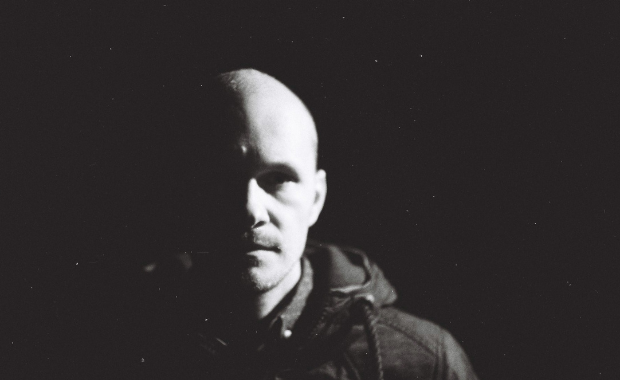Life
How to Expand Your Capacity to Get More Out of Life

You’ve heard it before. We all have the same number of days in a year and hours in a day. But some people seem to get more done within those confines of time. Others read books about productivity and try to get more out of themselves and their teams. Strive to become more efficient. Or add even more to the to-do list. But if we’re already maxed out, how do we reach higher levels of success?
We seem to be in a constant cycle of bouncing off the walls of what confines us. The calendar, the clock, the to-do list, deadlines, demands, expectations, schedules. And then try to bust through those walls by working harder or more efficiently. We think we’re working leaner and smarter but really, we’re often just trying to fit more in. What if there was another way?
Growing up, every Summer my family would vacation on a lake with sandy beaches lining the edge. One of my favorite things to do, with a plastic shovel in hand, was to dig a hole in the sand as deep as my little hands and plastic shovel could make, a few feet from the water’s edge. Then, I’d carve out a trough from the water’s edge all the way to my newly formed reservoir. Then wait and observe as the water traveled up the sandy trough to the hole I had dug. That simple childhood game was hours of fascination and more importantly, teaches us an important lesson about capacity.
You see, time is limited. The calendar is set. Our to-do lists max out. But capacity is unlimited. The way to think unlimited is to think in terms of capacity. What that childhood activity teaches us is that when we make space, in this case a hole and trough, it gets filled. Sure, time is limited and there’s a set number of days and hours available to us all. But the capacity we create within those limitations and how it gets filled is unlimited.
Strive to be bored
Like the hole in the sand, you have to make space for something else to come in. Working harder, more efficient and increasing productivity isn’t always the answer. Perhaps unplugging the drain is. Instead of trying to accomplish more, try delegating, automating and eliminating. Instead of trying to cram more in, get rid of things in order to make space. Or as I like to say, strive to be bored. What if you had time to twiddle your thumbs? Imagine what you’d have time for if you delegated, systematized or got rid of things that were taking up your time.
That includes tasks and yes, maybe some customers. That’s why it’s always best to work only with your ideal customers. Why? Because we all know the customers we bend over backwards for, jump through hoops for, who take up the most of our time, are always the least profitable. On the other hand, our ideal clients are a breeze to work with, enable us to do our best work, are the most profitable and leave us time to move on to other customers.
As high achievers, we often get caught up in the busyness trap. Not comfortable with an idle moment, we fill it up with less than optimal use of our time. We think we have to stay in a state of overwhelm to feel pushed to our limits.
However, if you don’t have time, how can you expect more of what you want to come in? What message is “no more time” saying to the prospect of more work? More success? If you keep saying to yourself, “I don’t have enough time”, what else are you saying you don’t have enough of? Money? Customers? Downtime? This is, at its root, a scarcity mindset. Because you haven’t created any space for more. Time is limited. Your capacity is not.
Preserve your energy
Your energy is a reservoir. That’s why self-care is so important to your success. People burn out for a reason. They push themselves beyond their capacity. Like trying to fix the time constraint issue by being more productive may not be the answer, preventing burnout by reducing stress may not be the answer either. Reducing stress is certainly part of the equation. But these are outside-in approaches; trying to control external circumstances first. A better approach is inside-out.
Instead of trying to reduce the outside circumstances that cause burn out, how about increasing your capacity for what you can handle? That’s where self-care comes in. Instead of a reservoir in the sand waiting to be filled, think of your energy capacity in the reverse. You start with a full reservoir of energy and well-being that you need to keep filled in order to have something to give out.
Being in business is draining. Life is draining. Especially these days. Don’t let your tank get too low. Your energy and well-being is a capacity to be refilled and expanded. What does that for you? Time off? A hobby? A bike ride? Walk on the beach? If you think about your energy as a capacity and you don’t let it run too low, it may not take much to feel refilled. Maybe a short break. Perhaps lunch with a friend. An hour massage would be nice.
Develop personally
“Your level of success rarely exceeds your level of personal development”. That quote by Jim Rohn may be some of the truest words ever spoken. Certainly when it comes to success. It’s up to you to develop yourself personally, to grow and stretch in order to create the capacity for more success to come.
Entrepreneurship and self-employment are like personal development on steroids. The rate by which we have to rise to the occasion, learn the next new thing, have our buttons pushed and recover, and find the best in ourselves all the time is at warp speed. How could our personal development not be a capacity within ourselves?
A capacity that needs constant nutrition to expand and to grow. Which is why we must always be developing not just our skill set, but ourselves. Our mindsets, our attitudes, our ability to persevere, our creativity, our innovation. The ways in which we need to grow are unlimited which is why we must think in terms of unlimited capacity.
What I know for sure is that success is not limited. What’s available to you is not limited. But you have to increase your capacity to handle more through constant personal development in order for there to be room for more success. Thinking in terms of what limits you will keep you where you are. Thinking in terms of capacity, and the never ending ability to increase capacity for more to come, will help you think unlimited.
Life
Why Moving to a New City Can Change Your Mindset
Discover how moving to a new city boosts neuroplasticity, builds resilience, and reshapes your mindset

Relocation is always a challenge. Rebuilding and restarting your life requires you to step outside of your comfort zone. (more…)
Change Your Mindset
The Hidden Reason You Can’t Stay Consistent
If motivation keeps failing you, the real issue isn’t discipline. It’s the identity shaping your habits and long-term success.

Success often looks like a time-management problem. You buy a planner, set reminders, and hope that next week will be different. For a few days, it works. Then stress hits, motivation drops, and old patterns return. (more…)
Did You Know
How Skilled Migrants Are Building Successful Careers After Moving Countries
Behind every successful skilled migrant career is a mix of resilience, strategy, and navigating systems built for locals.

Moving to a new country for work is exciting, but it can also be unnerving. Skilled migrants leave behind familiar systems, networks, and support to pursue better job opportunities and a better future for their families. (more…)
-

 Business4 weeks ago
Business4 weeks agoThe Salary Shift Giving UK Employers An Unexpected Edge
-

 Scale Your Business4 weeks ago
Scale Your Business4 weeks ago5 Real Ways to Grow Your User Base Fast
-

 Business4 weeks ago
Business4 weeks agoThe Simple Security Stack Every Online Business Needs
-

 Finances4 weeks ago
Finances4 weeks agoWhy Financial Stress Is One of the Biggest Barriers to Personal Growth
-

 Business3 weeks ago
Business3 weeks agoWhy Entrepreneurs Should Care About AI Automation Testing
-

 Business4 weeks ago
Business4 weeks agoWhy Smart FMCG Entrepreneurs Outsource What They Can’t Automate
-

 Business3 weeks ago
Business3 weeks agoWhat Every Business Owner Should Know Before Investing in API Integration
-

 Did You Know4 weeks ago
Did You Know4 weeks agoThe SEO Traps Even Experienced Marketers Fall Into



























